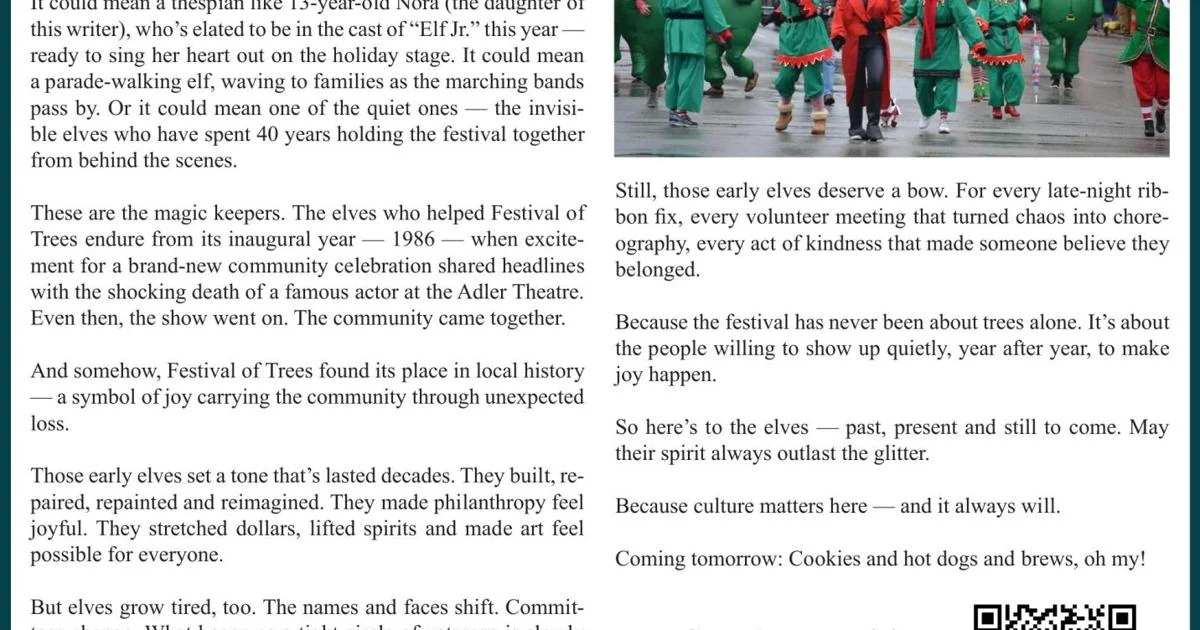Copyright Salon

It feels weird to make food glamorous right now. As millions of Americans brace for the potential lapse of SNAP benefits this month— and as grocery prices climb heading into the holidays — the fantasy of cinematic domesticity has never felt more out of touch. Enter Nara Smith, the influencer who’s built an empire on handmade pasta and immaculate outfits, now partnering with Reformation on a 20-piece capsule collection of “grocery store couture.” The line — all satin, sequins, and $300 pajama sets — dropped more than a month ago, but feels newly relevant as we edge toward the holidays and the $600 egg-spoon phase of the internet’s gift-guide season. It landed just as shoppers were loading up on boxed meals and non-perishable eats, a dissonance that feels almost poetic: a culture clinging to glamour even as the cupboards start to echo. Ref x Nara is “nostalgic, theatrical, and a little impractical, all made from scratch,” according to the brand. It’s an accurate descriptor considering that Smith, herself, has gone viral for making fancy meals from scratch — even DIY-ing sunscreen — while wearing exuberant fits and a full beat. “I’ve worn Reformation for many years and always feel so beautiful in their pieces,” Smith said in an interview with ELLE. “They often lean into vintage silhouettes, which are such a key part of my own sense of style.” Indeed, the collection taps into 1950s-era silhouettes and trends: slim pencil skirts, double-breasted jackets and nipped-in waists. It’s a nod to Smith’s own social media brand, which has been associated with the widely prevalent “tradwife” movement online — even though Smith herself has rejected the label. “I was involved every step of the way,” Smith explained. “This collection is incredibly cinematic, so I say: lean into the drama. Who says you can’t wear a faux-fur-lined gown to go grocery shopping?” Sure, no one is stopping anyone from sauntering into their local grocery store dressed to the nines in faux fur and pumps. But when affordability remains a growing concern amongst consumers, Smith’s collection doesn’t provide that. An entire pajama set is available for $248. Heeled mules (cleverly called Milk Glass Heeled Mule) are $278 a pair. The Drizzle Dress (which was inspired by the idea of looking “like a siren coming out of the water,” Smith told ELLE) retails for $348, while the Nara Shoulder Bag is a whopping $448. There’s a cultural dissonance between the fantasy of Smith’s collection and the economic reality of food right now. Amid an ongoing federal government shutdown, the Department of Agriculture froze funding for the Supplemental Nutrition Assistance Program (SNAP), leaving nearly 42 million Americans without benefits to purchase groceries and other essentials, effective Nov. 1. While earlier this week the Trump administration was ordered by U.S. District Judge John McConnell to pay SNAP benefits for November, The Justice Department on Friday asked the Supreme Court to freeze that order. Additionally, when food inflation and rising beef prices prevail, it’s hard to imagine that ostentatious couture would be at the top of consumers’ spending list. In recent months, a large number of consumers have been making efforts to shop for groceries frugally. The New York Times reported that sales of Hamburger Helper, a 1970s staple, are up 14.5 percent in the year through August. Same with rice (up 7.5% this year), canned tuna, salmon, sardines, beans and boxed macaroni and cheese — foods commonly eaten as “struggle meals.” Grocery prices have been on the rise since the beginning of the pandemic. Subsequent factors, including Russia’s invasion of Ukraine, a highly pathogenic bird flu outbreak and President Donald Trump’s tariffs on imported goods, have only intensified price hikes. According to the Bureau of Labor Statistics, prices have been up 29 percent since February 2020. Grocery prices also rose 0.6% from July 2025 to August, the highest jump in almost three years, according to the Consumer Price Index. As for individual goods, coffee prices increased more than 20% in the past year. Want more great food writing and recipes? Sign up for Salon’s free food newsletter, The Bite. In an effort to save money, several consumers are modifying their spending habits. A February survey conducted by LendingTree found that nearly 90 percent of consumers are changing the way they shop to combat prevailing inflation. Many are stocking up on affordable, non-perishable food items, NPR reported. Others are using more coupons and choosing private-label products, which tend to be cheaper. Some are even skipping meals. At its core, Smith’s collection is glamorous, albeit unrealistic and ludicrous — much like Smith’s own social media content. Mind you, this is the same influencer who went viral for making a “deconstructed salad,” which is essentially a whole romaine leaf dressed in lemon juice, olive oil, salt and pepper. The romanticization of a single piece of lettuce was certainly not on my bucket list for 2025. This isn’t the first time Reformation has collaborated with celebrities and digital creators (the brand previously launched collections with Gen Z “It Girl” Devon Lee Carlson and Kacey Musgraves), but it’s certainly its first foray into the world of food fashion. Unlike food fashion collaborations of the past — many of which were merely playful stunts — Ref x Nara is a whole domestic fantasy, tying homemaking to glamour. Reformation imagines a world where homemaking is sequins and satin. But the grocery aisle tells another story: boxed mac and cheese stacked high, Hamburger Helper flying off shelves. The fantasy is glamorous. However, the reality is anything but. Maybe this is the natural endpoint of the year’s strangest aesthetic trend: finding beauty in scarcity.



